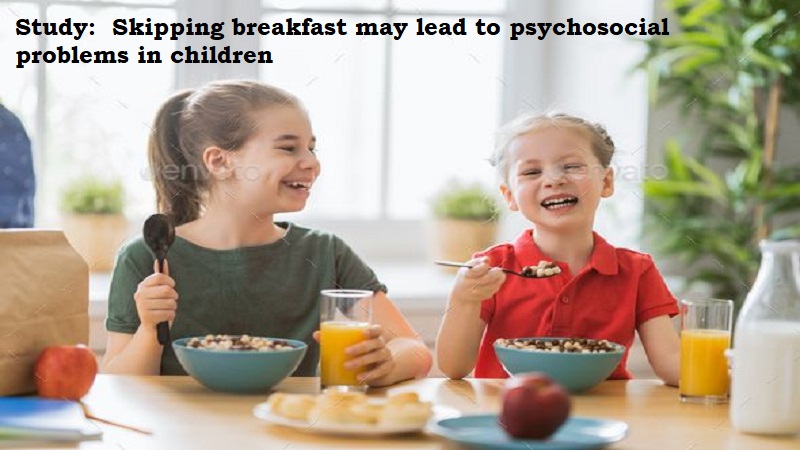
We are all aware of how crucial breakfast is to leading a healthy lifestyle. While eating breakfast like a king is crucial for adults, youngsters should also eat their meal promptly.
Young people who eat healthy breakfasts at home have better psychological health, according to a recent study.
This study is the first to look into the reported effects of whether or not children eat breakfast, as well as where and what they eat.
Previous research has highlighted the importance of a wholesome breakfast. These findings provide parents and their kids with insightful information and sound recommendations.
The journal Frontiers in Nutrition published the study’s findings.
According to first author Dr. Jose Francisco Lopez-Gil of the University of Castilla-La Mancha in Cuenca, Spain, ‘our results imply that it is not only vital to eat breakfast, but that it’s also crucial where young people eat breakfast and what they eat.’
‘In children and adolescents, skipping breakfast or eating it away from home is linked to an increased risk of psychosocial behavioural issues. The use of specific foods and beverages is also linked to either higher (processed meat, for example) or decreased (dairies, cereals, for example) likelihood of psychosocial behavioural issues.
In this study, Lopez-Gil and his associates examined information from the Spanish National Health Survey conducted in 2017.
This study contained questions regarding children’s psychosocial health, which included traits like self-esteem, mood, and anxiety, as well as breakfast routines.
3,772 Spanish citizens aged four to fourteen participated in the survey, which was completed by the parents or guardians of the children.
The research led by Lopez-Gil discovered one of the most significant findings: missing breakfast altogether was nearly as harmful as eating it away from home.
The authors speculate that this might be because eating out is frequently less nutrient-dense than eating at home. The findings also revealed that consumption of foods including coffee, milk, tea, chocolate, cocoa, yoghurt, bread, toast, cereal, and pastries was all linked to a lower likelihood of behavioural issues.
Unexpectedly, greater chances of these problems were associated with eggs, cheese, and ham.

Post Your Comments